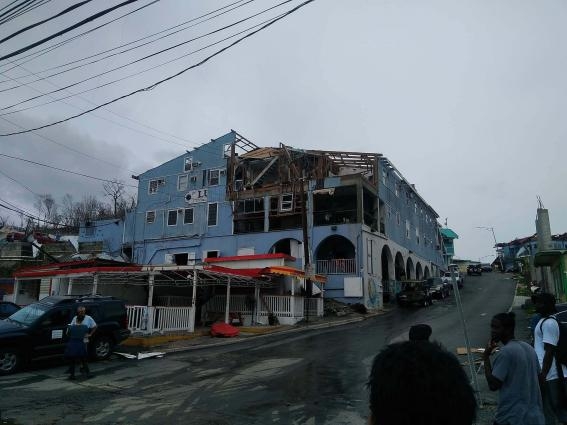What lessons have been learnt from the 2017 hurricane season?

The World Meteorological Organisation, the Caribbean Institute of Meteorology and Hydrology (CIMH), the Caribbean Disaster Emergency Management Agency (CDEMA), and a gender expert have released a review into the 2017 Caribbean hurricane season as part of the Climate Risk and Early Warning Systems (CREWS) initiative.
The review titled ‘Lessons learnt on Early Warning Systems during the 2017 Caribbean Hurricane Season’ was presented at the Regional Platform for Disaster Risk Reduction in the Americas in Colombia last week.
The Caribbean experienced one of its worst hurricane seasons on record last year with severe damages to infrastructure and a high number of causalities and fatalities. There are now calls to move towards a regional strategy to strengthen early warning systems and protect infrastructure.
David Farrell, Principal of CIMH, noted:
“The magnitude of the impacts caused many to reflect on the region’s resilience to severe weather - none more than the national meteorological services whose compromised operational capabilities rendered national early warning systems virtually inoperable, thereby placing many lives at risk.”
The review praised the accuracy and timeliness of forecasts but criticised the warnings given for secondary hazards such as flooding and coastal inundation. Due to the rapidly changing intensity levels of the hurricanes the secondary hazards caused significant damage.
Similarly, the review found that the communication of risk assessments and response plans were insufficient, with warnings about the secondary hazards not being disseminated effectively.
Ronald Jackson, Executive Director of CDEMA commented:
“People Centered Early Warning Systems is a key Regional outcome of the CDM Strategy 2014-2024 and as such, we are delighted that this exercise has provided us a basis to factually, empirically and qualitatively identify where critical gaps exists in order to better orient future investments in advancing the Caribbean Agenda for People Centered Early Warning Systems”
The review also highlighted the importance in considering gender in early warning systems as the roles, responsibilities and perceptions of men, women and children significantly influence how they respond in an emergency and react to warning messages.
The review’s purpose was the identify critical gaps and policy recommendations for hurricane preparedness relating to hydro-meteorology, disaster risk management and gender.
CREWS have approved a $5.5 million project for the Caribbean that will respond to the recommendations of this review.
Join us for the 10th Annual AIDF Global Summit on 5-6 September in Washington, D.C, USA where disaster risk management will be a key discussion point. The summit will also include a disaster response simulation, click here to view the summit's full agenda.
If you’d like to stay informed on the latest updates in aid and development, please sign up for the AIDF newsletter.
Image credit: WMO














